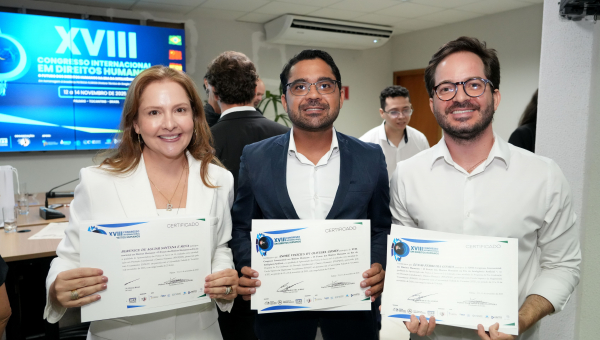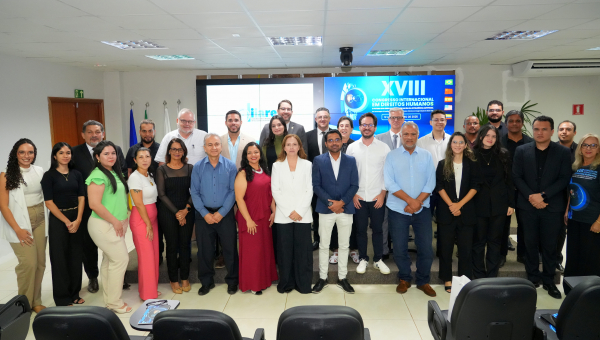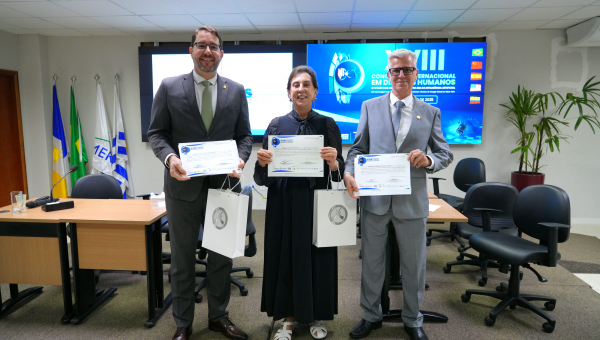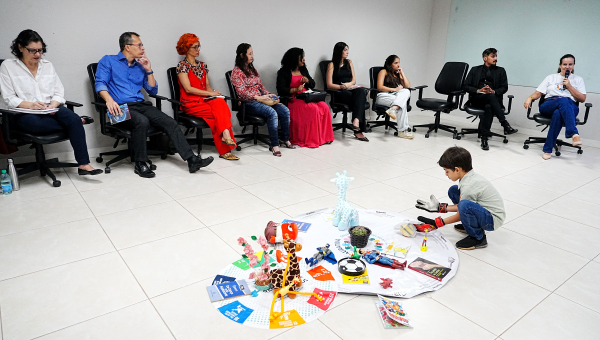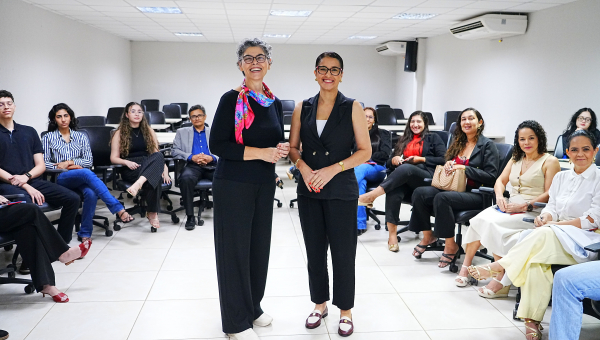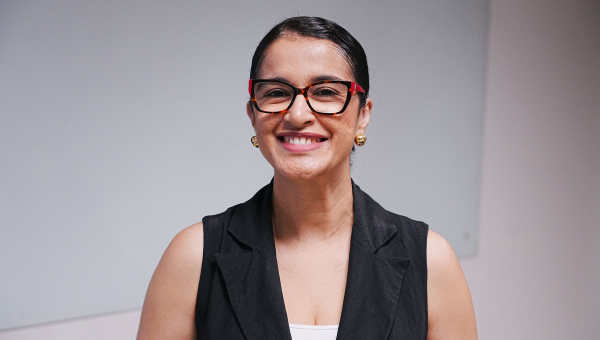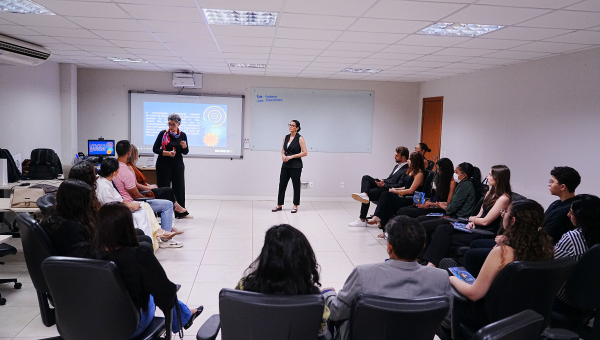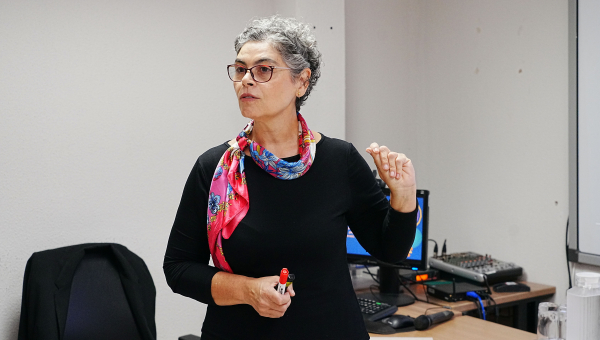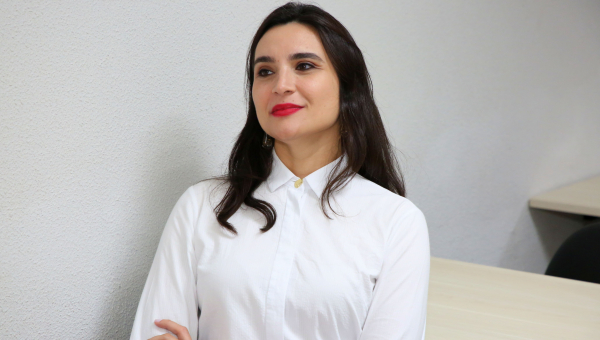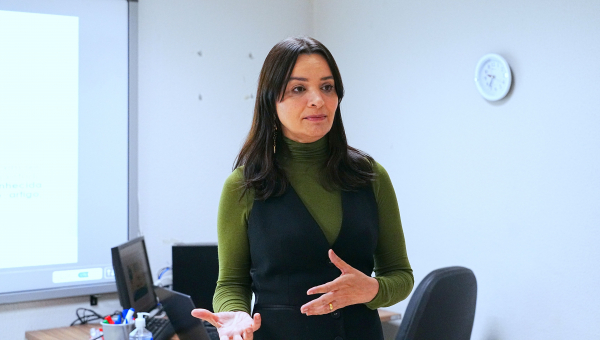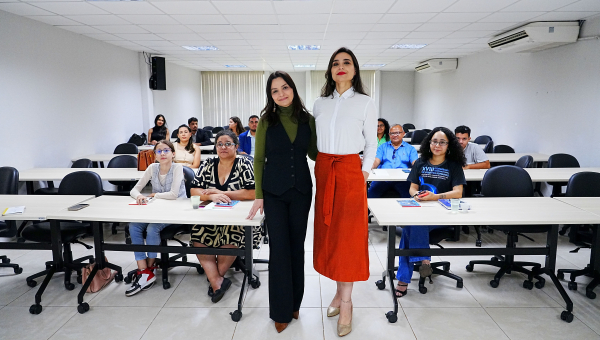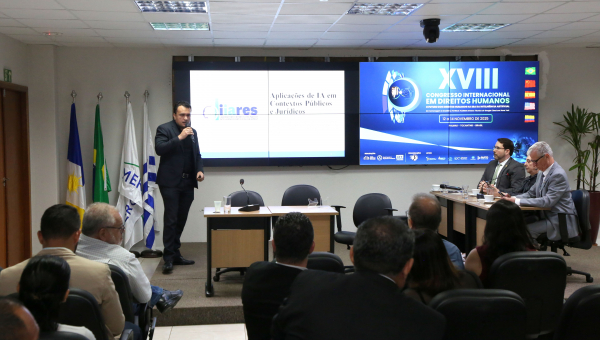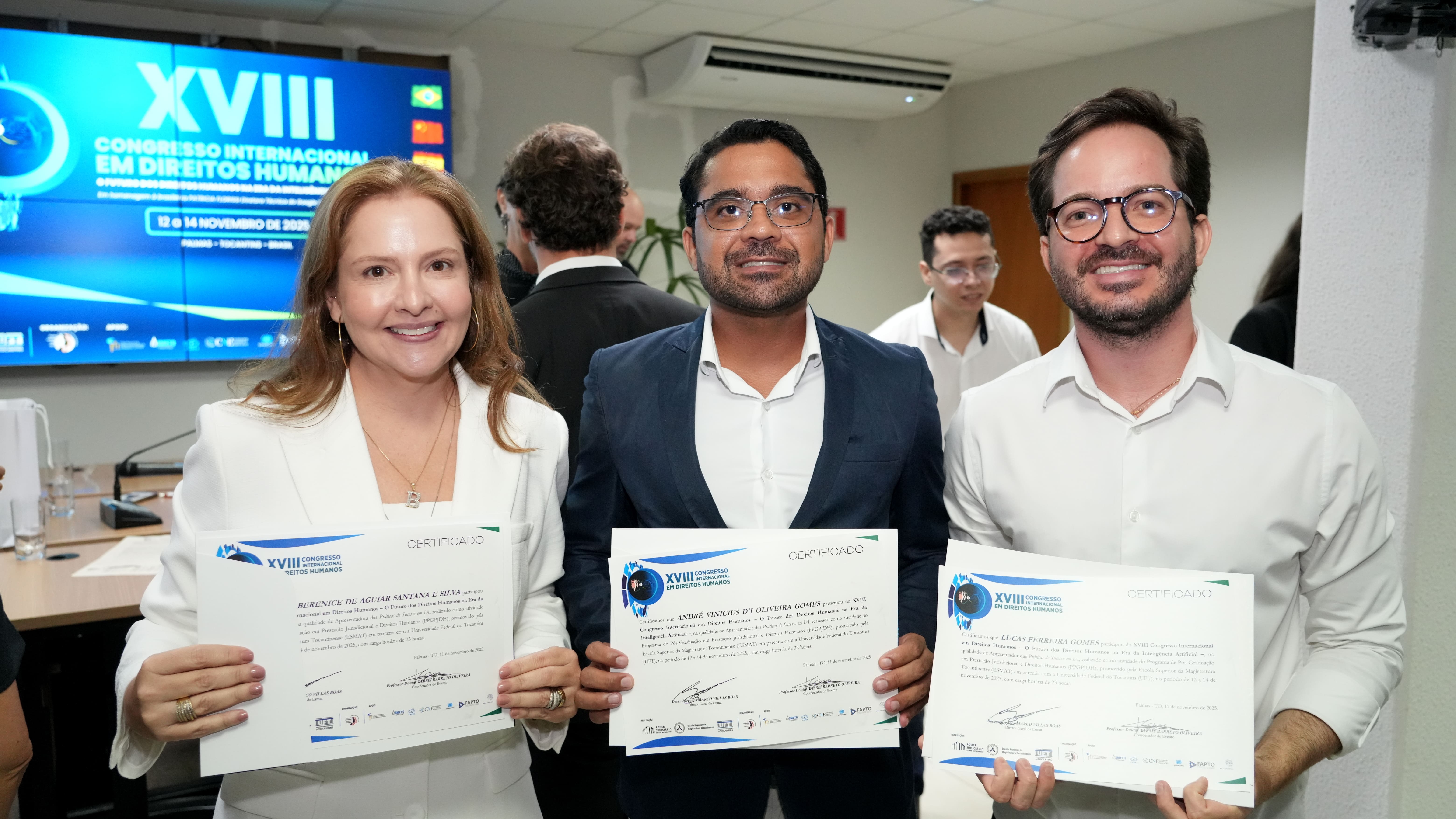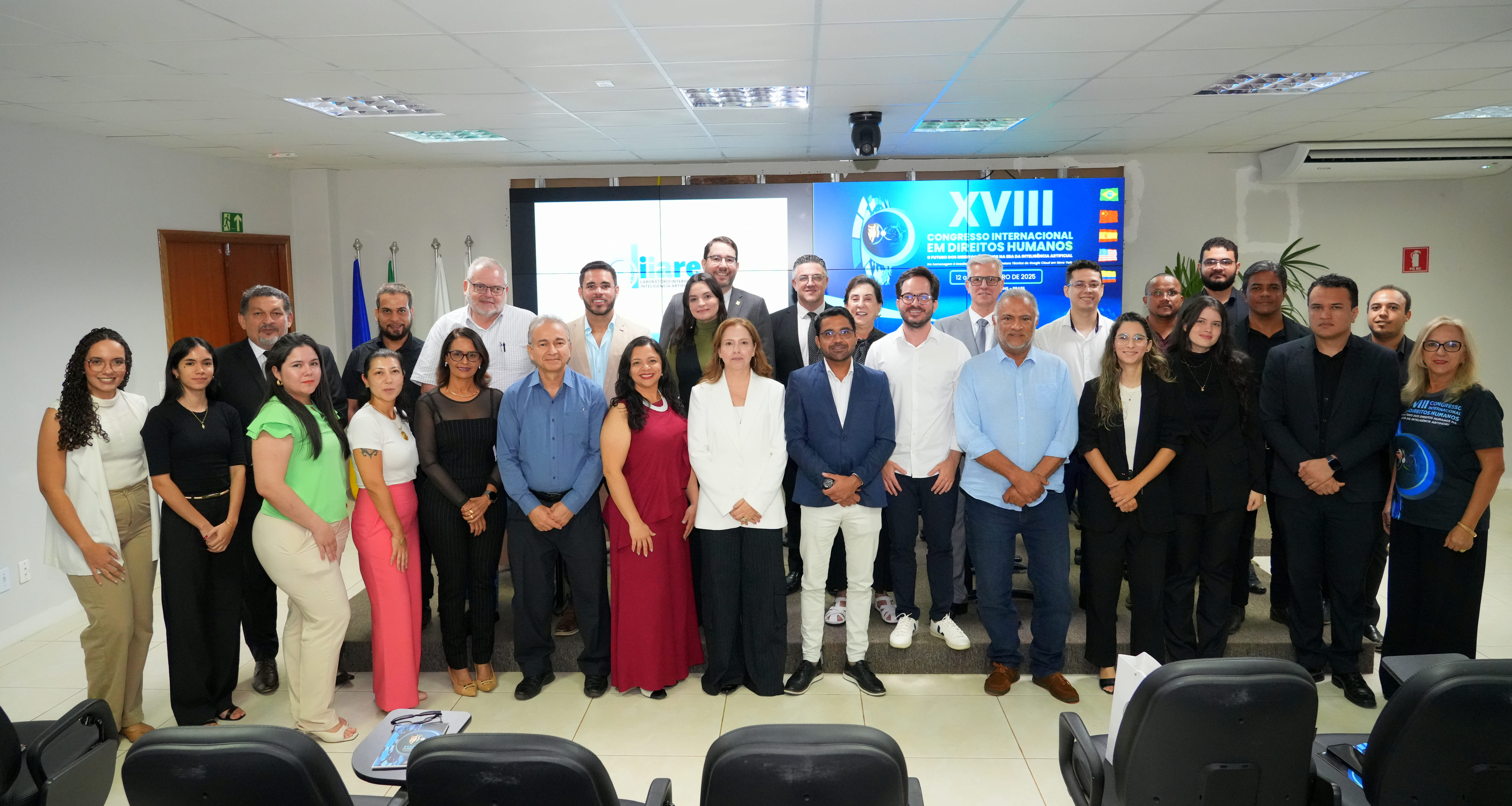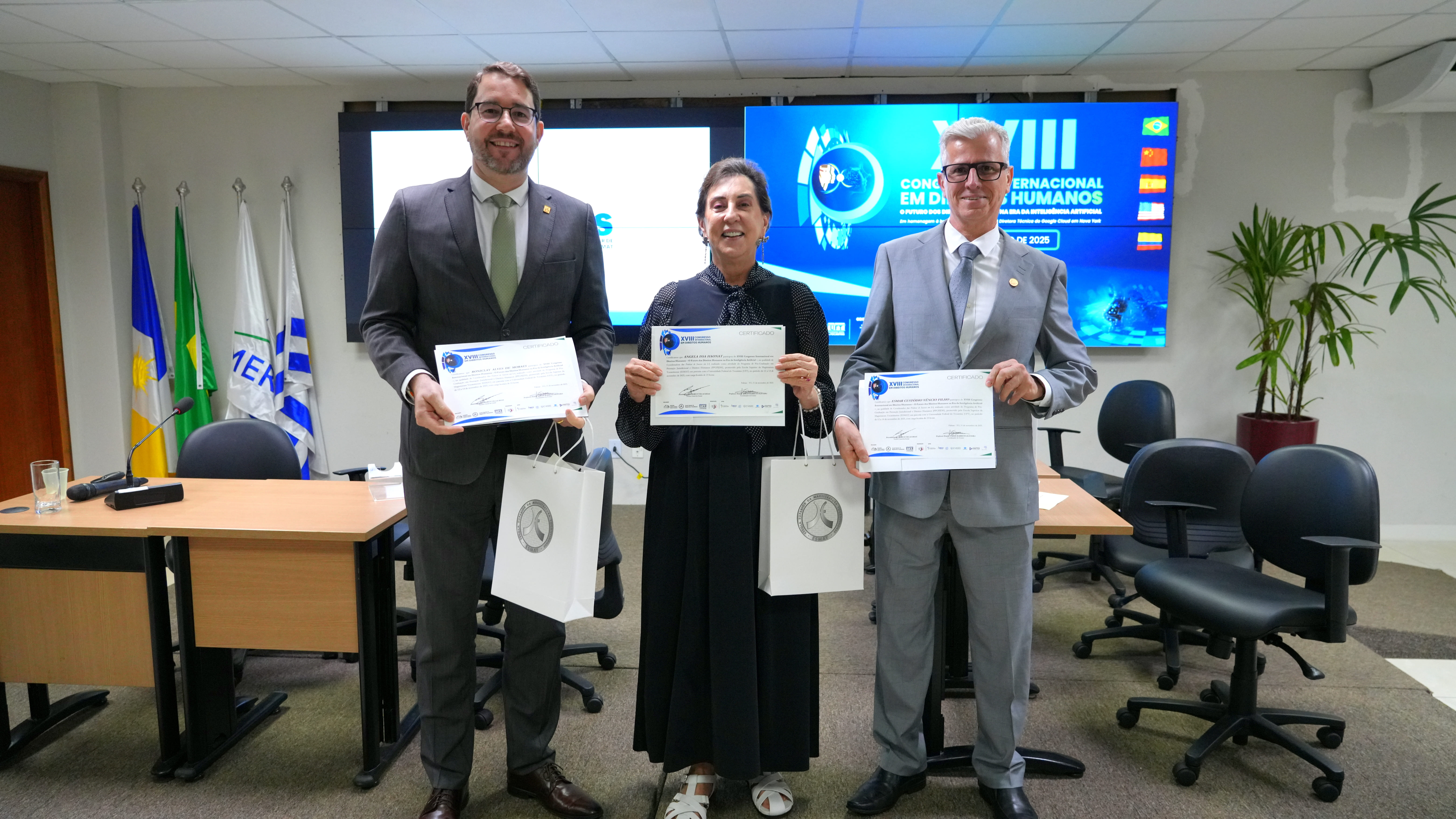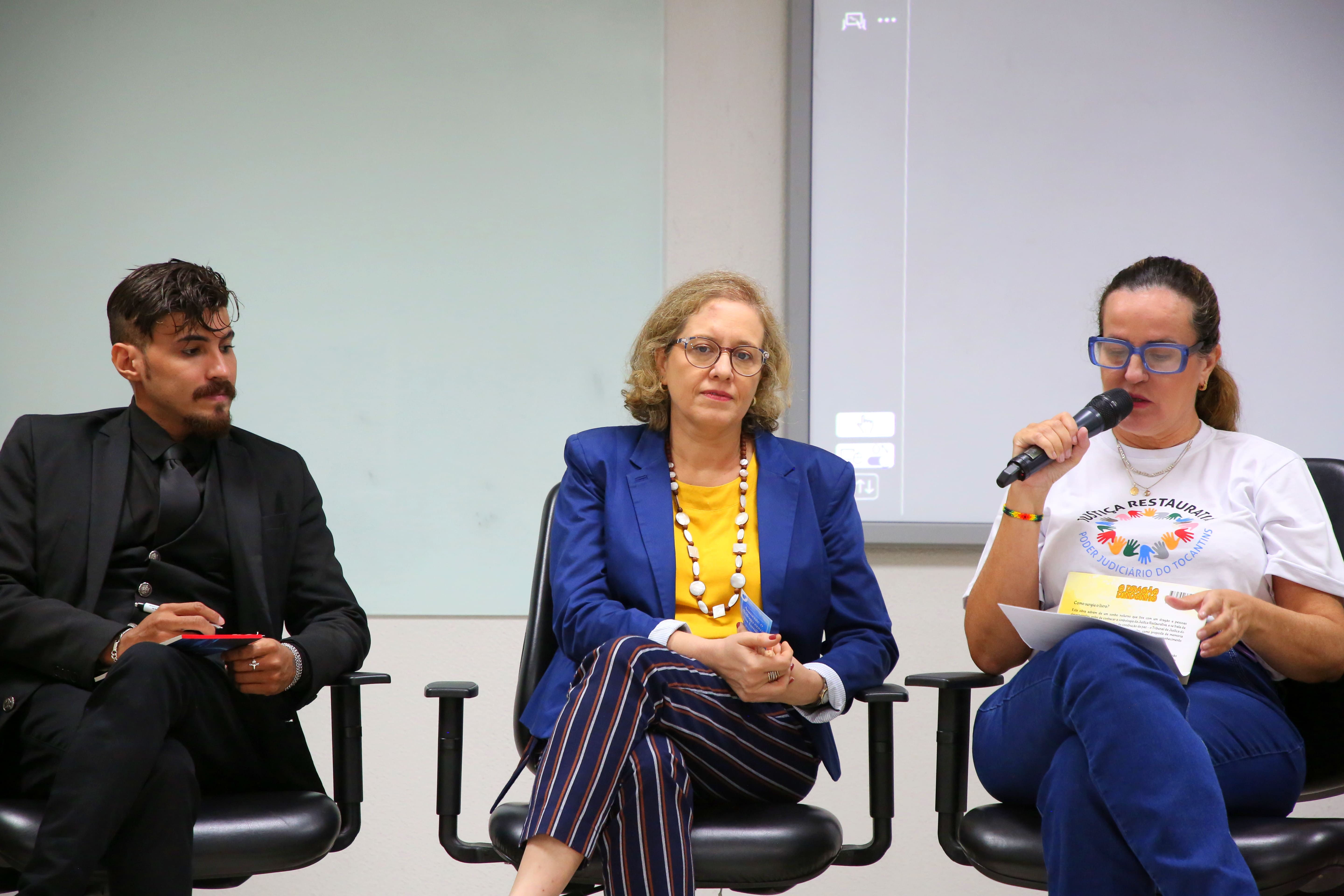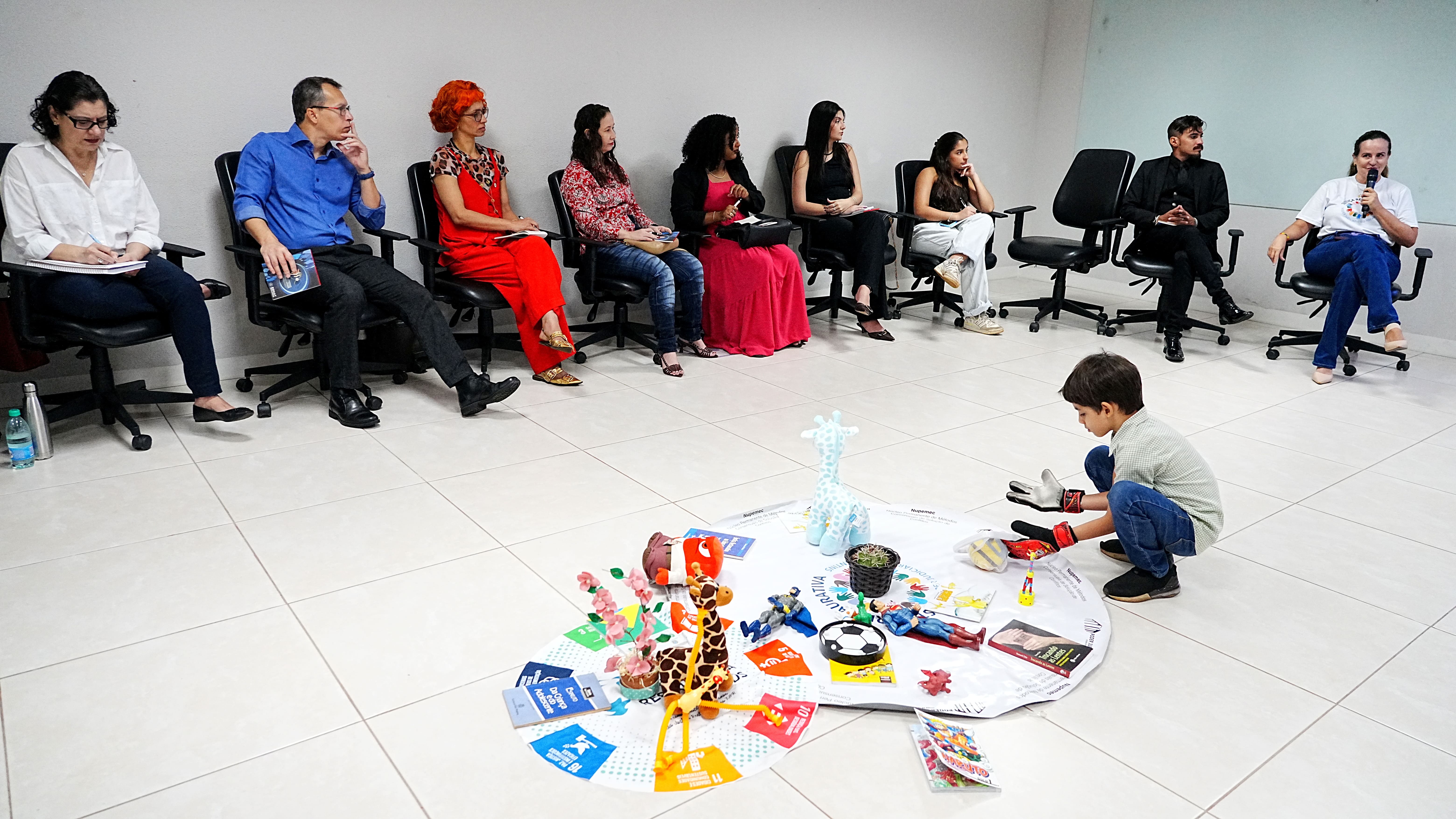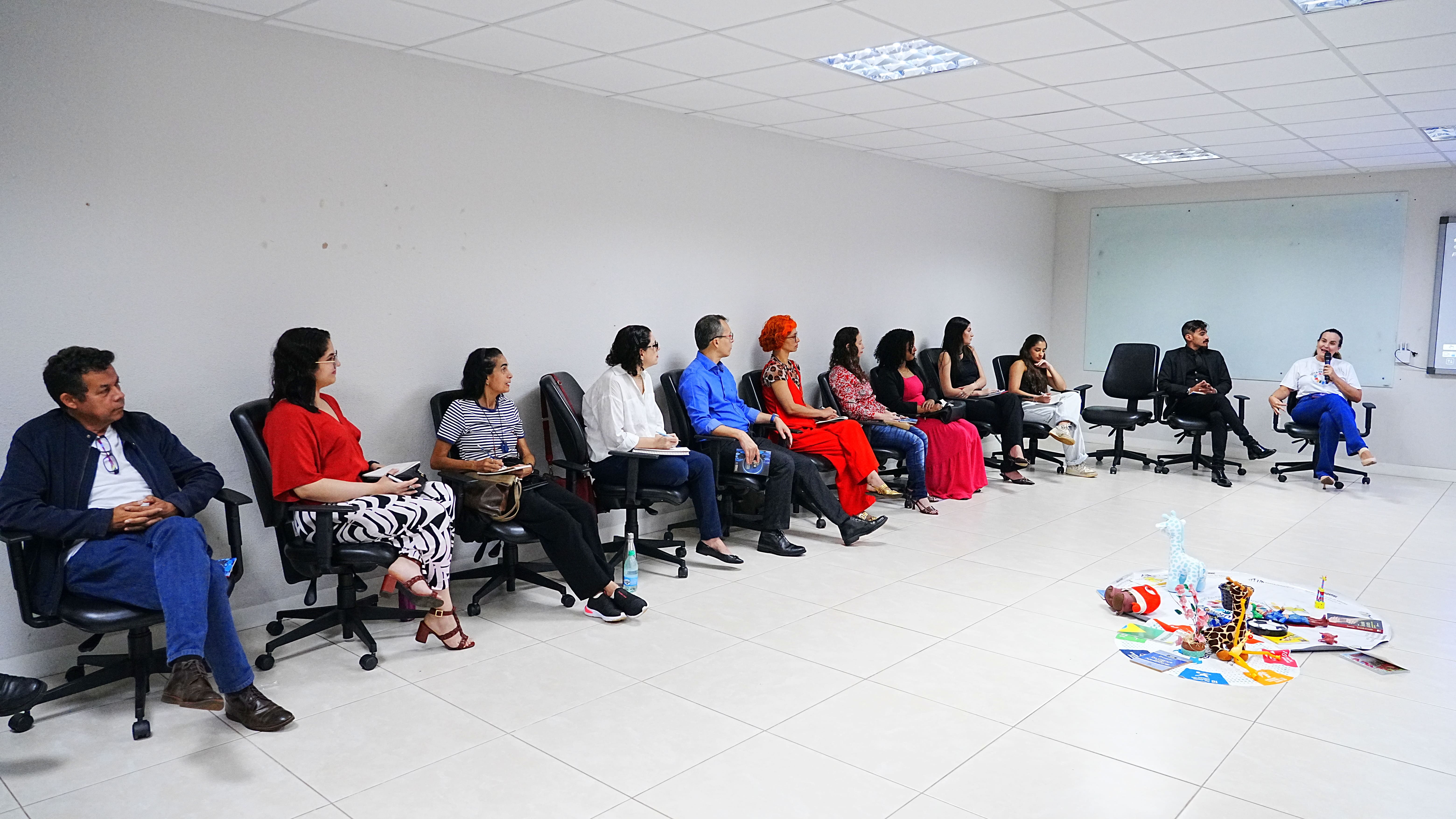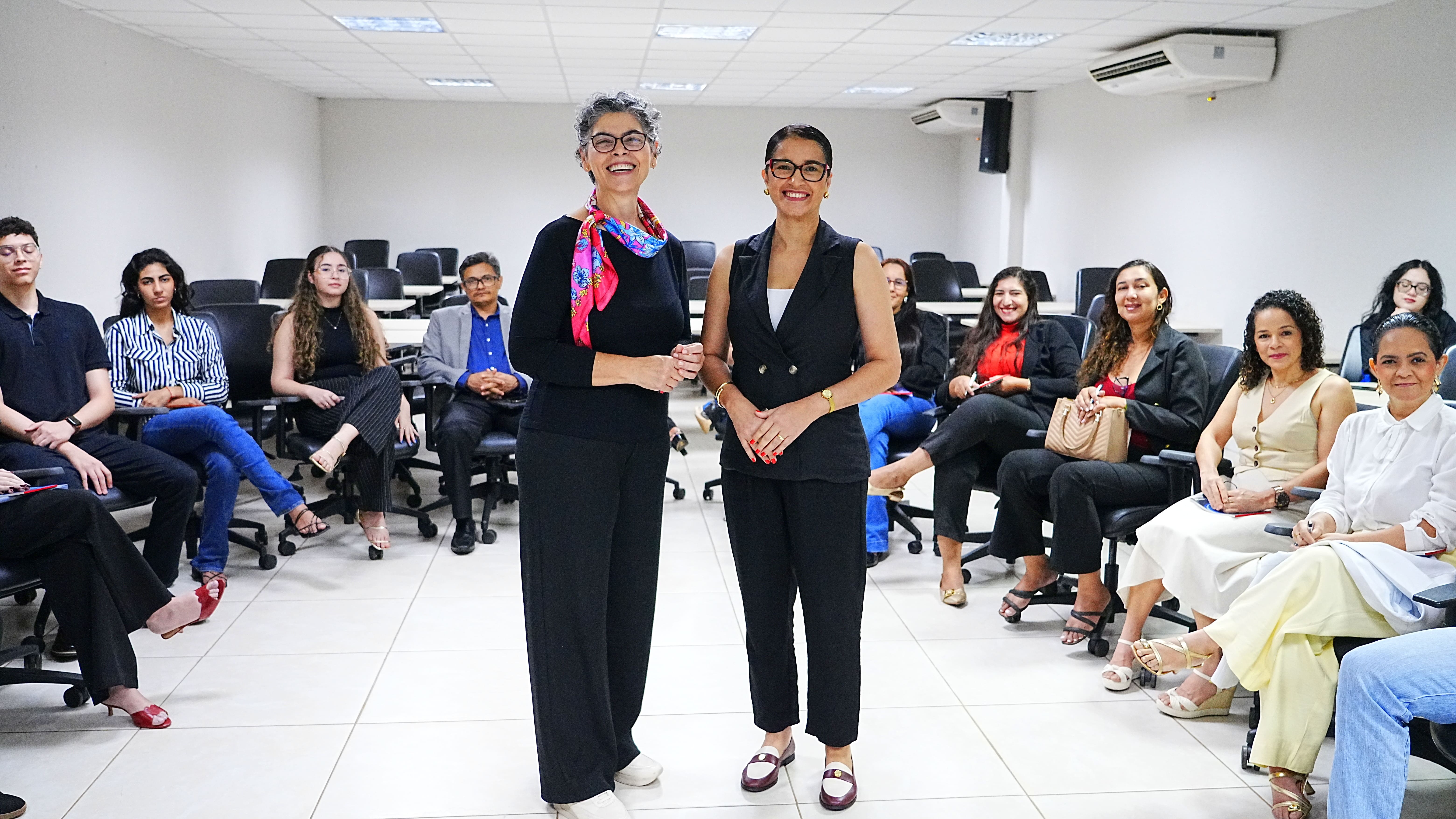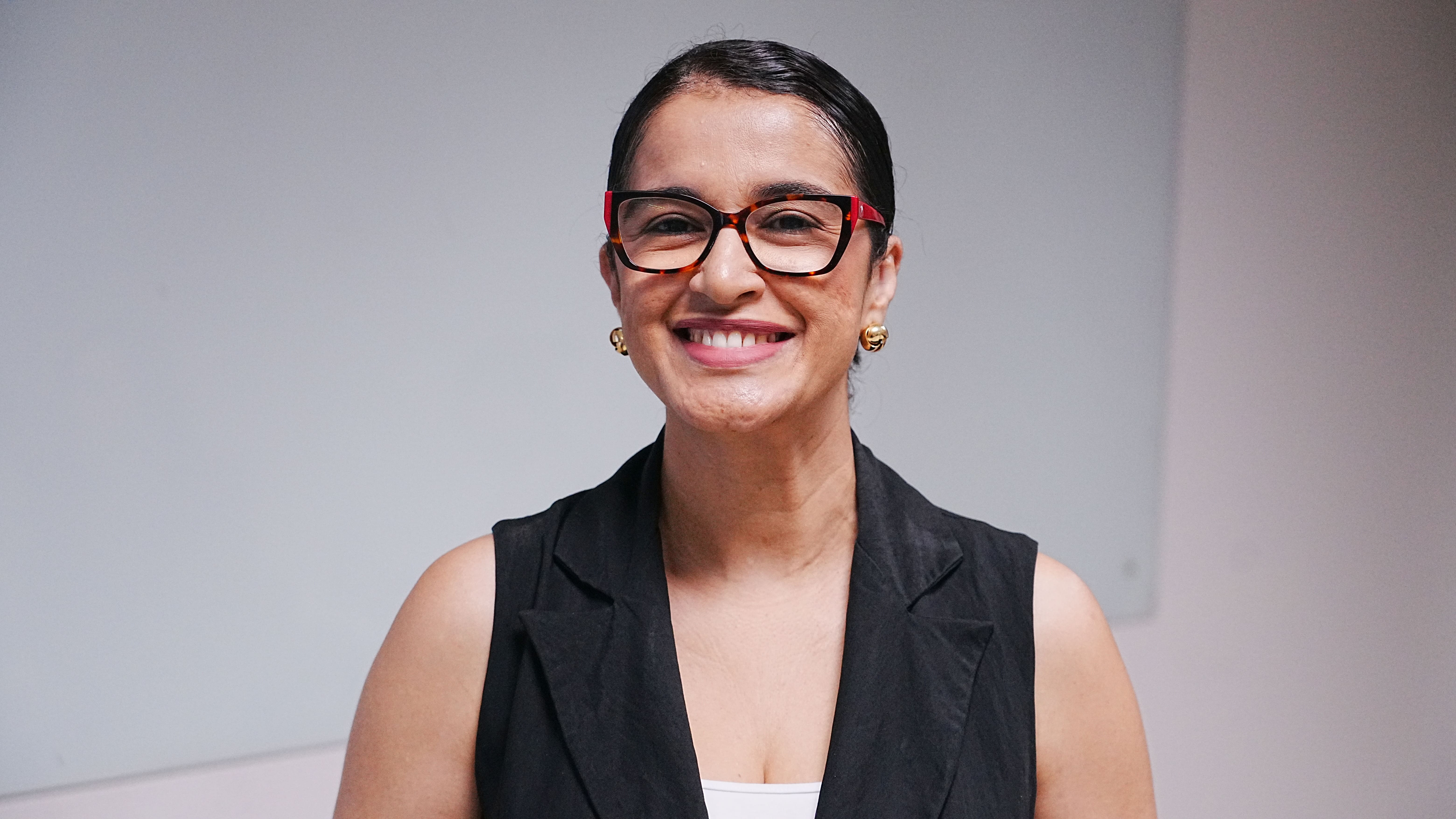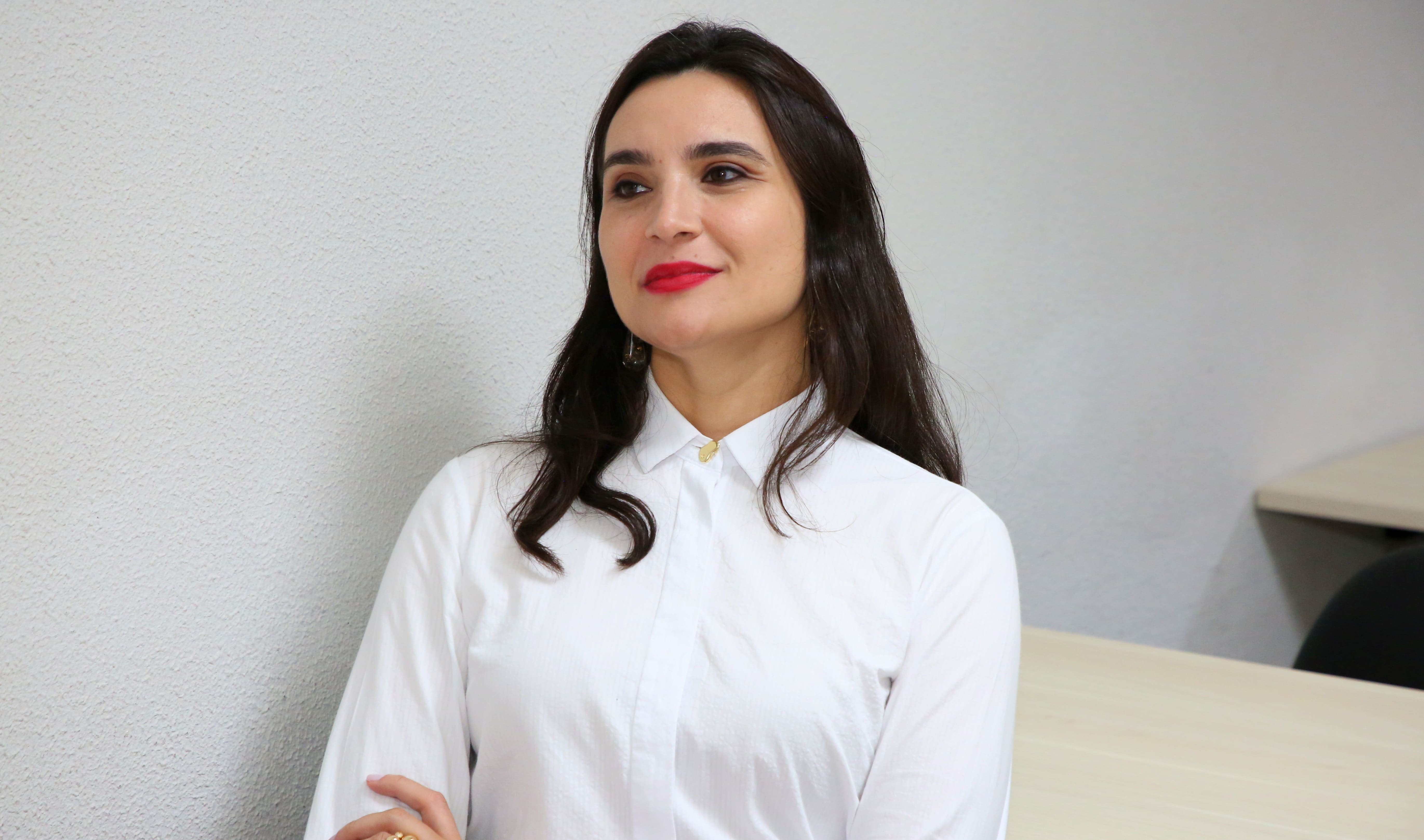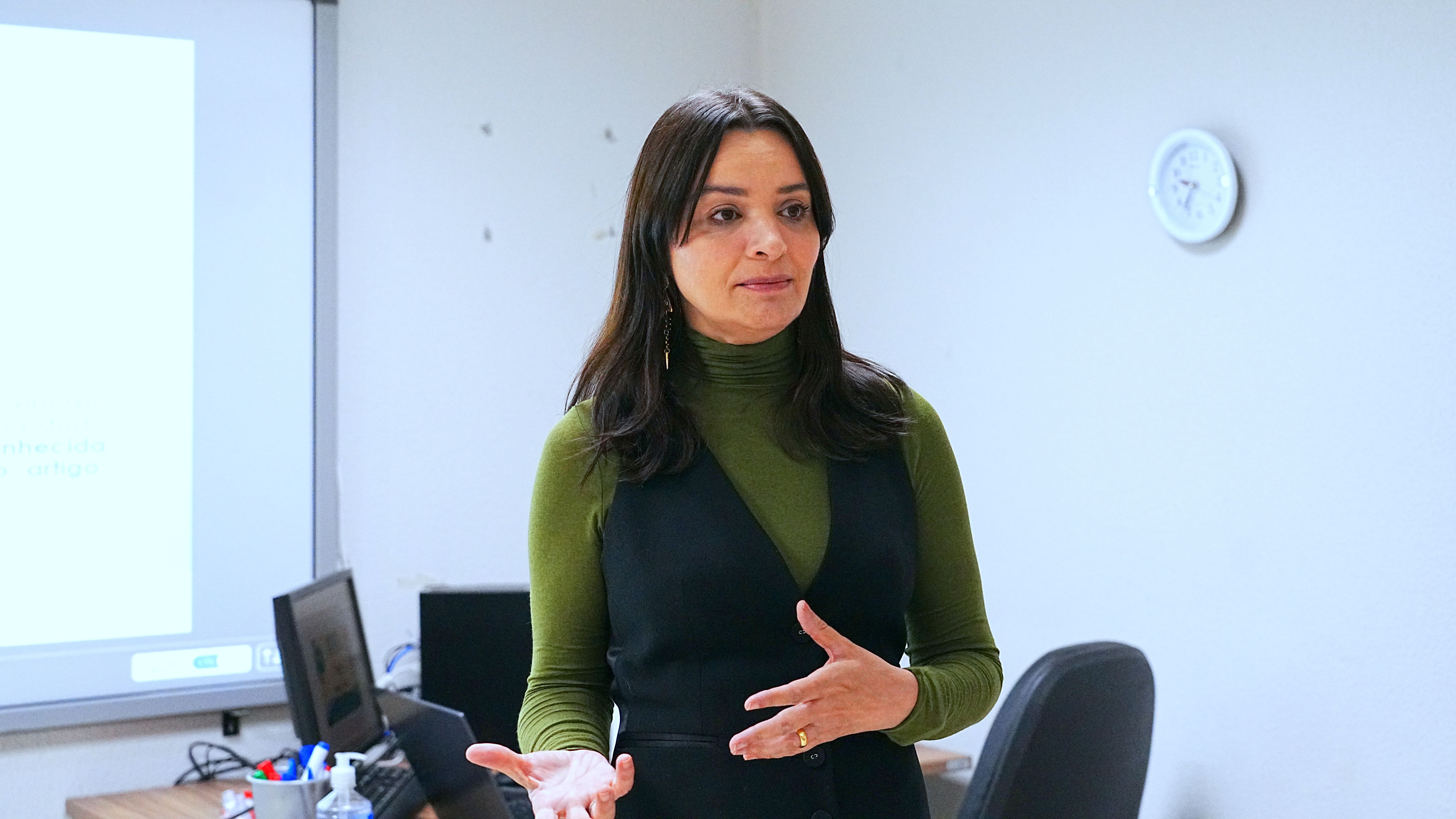
The XVIII International Congress on Human Rights began its activities on Tuesday morning (November 11th), with five simultaneous mini-courses held at the headquarters of the Superior School of the Judges of the State of Tocantins (Esmat). The inaugural meetings brought together participants from different areas around themes that cross the Justice System and life in society, from female prison to culture of peace in schools, from gender justice to artificial intelligence.
"Freedom also lives in words"
One of the highlights of the morning was the mini-course on "Round of Reading: Women and the Prison", led by the masters and sisters Andrea Cardinale Urani Oliveira de Morais and Izabel Cristina Urani de Oliveira. The moment brought together students and community members for a sensitive listening on the role of education in the prison system.
When talking about the right to education as a duty of the State, Professor Izabel highlighted that prison is experienced differently by women, often crossed by previous gender-based violence. Supported by landmarks like the Mandela and Bangkok Rules, she stressed that the focus of the system should be on rehabilitation.
“It is not normal to live with inhumane practices, such as torture or solitary confinement for an indefinite period. Prison cannot be a punishment of torture", she said.
In the second part, Andrea Cardinale Urani directed the focus to social responsibility, highlighting the performance of the Community Councils and the function of the Universities. "The university is a space of privilege. We need to fulfill our social function", said Andrea.
The activity was also marked by exciting moments of sharing, such as the testimony of Antônio Carlos, 60 years old, and Murillo Gabriel, 20 - father and son -, both law students at Ulbra, who participated together in the mini-course.
Peace-building circles
While the mini-course by Urani sisters promoted reflection on the prison system, other ESMAT rooms deepened urgent debates focused on conflict resolution, gender equity and the ethical use of technology.
In the mini-course on "Peace-building circles as an instrument of interpersonal communication and conflict prevention/ management", led by Doctor Patrícia Medina and Professor Taynä Nunes Quixabeira, a reflection on the role of communication in the transformation of conflicts was proposed, based on the foundations of the Restorative Justice.
"It is essential to achieve a deeper understanding, which involves complex mental processes such as analysis, synthesis and judgment. This level of understanding is essential for the development of interpersonal communication skills, whose effectiveness depends on an internal and reflexive movement before applying corrective techniques", explained Professor Medina.
The proposal of the Restorative Justice was addressed as a way to prevent the co-optation of parties involved in conflicts and as an opportunity for transformation from listening, pause and critical analysis of causes.
Gender perspective
In the mini-course on "Gender perspective and legal certainty in trials: theoretical and practical tools", taught by Dr Carlos Mendes Rosa, Masters Emilleny Lázaro da Silva Souza and Márcia Mesquita Vieira, the focus was the lens change in the analysis of legal facts.
"The question that guides our whole situation from a gender perspective is no longer who is right or wrong. What if there is someone there at a disadvantage? Why is that person at a disadvantage?", asked Emilleny, reinforcing the status of the theme: "The gender perspective is a constitutional duty. Therefore, there is no choice".
The professors presented the concepts of formal and material equality, in addition to the eight steps reformulated by the CNJ for a fairer, more sensitive and equitable performance.
School violence and artificial intelligence
In the mini-course on "School Violence, Artificial Intelligence and Restorative Justice", led by Doctor Naima Worm, Judge Fabiano Gonçalves Marques and Judge Luciana Costa Aglantzakis, the debate revolved around the possible uses of technology to build safer school environments.
"The use of artificial intelligence in the prevention of school violence and in the analysis of coexistence must have a pedagogical, ethical and humanistic basis. For this, AI must empower, not watch", defended Judge Fabiano, emphasizing that the use of these tools must be in accordance with the principles of the LGPD (General Data Protection Law), with human supervision and clear educational purpose.
Future is now
In the auditorium of Esmat, the mini-course on "Success Practices in AI: Presentations of Institutions Members of the Justice System" demonstrated how technology is already being applied in the state of Tocantins.
Chaired by Justice Ângela Issa Haonat, with the presence of magistrates Roniclay Alves de Morais and Esmar Custódio Vêncio Filho, six cases of AI developed by the Judiciary, the Public Defender’s Office and the Federal University of the state of Tocantins were presented (UFT).
- Digital Integrator Portal (Inovassol): hub focused on indigenous communities, with public services and complaints channel;
- Recognize (Inovassol): system that qualifies personal recognition and prevents judicial errors;
- Understand Here (Inovassol): Generative AI that translates legal pieces into simple language;
- DefGPT (DPE-TO): platform that automates legal and administrative routines;
- AI Agent for Public Contracts (LIIARES/UFT): tool for production of administrative documents;
- Legal Research Assistant (LIIARES/UFT): local AI model to support legal decisions with security and privacy.
Programming
The Congress continues until November 14th (Friday). The programming of this Wednesday (November 12th) starts again with mini-courses, including the international "Artificial Intelligence, Penal System and Human Rights", in a virtual conference with Professor Doctor Zhao Shuhong, which will take place in the auditorium of the TJTO.
It is important to remember that the online transmission is intended only for participants from the regions of the interior of the state of Tocantins and other regions of Brazil. For this public, access will be released from the official opening of the event, tomorrow (November 12th), at 5:30 pm, by the Virtual Academic Secretariat (SAV) of Esmat.
The full programming can be accessed clicking here.
The event is promoted by the Superior School of the Judges of the State of Tocantins (Esmat), in partnership with the Court of Justice of the State of Tocantins (TJTO), with the Federal University of the state of Tocantins (UFT) and with the Professional Master’s Program in Judicial Provision and Human Rights (PPGPJDH).

